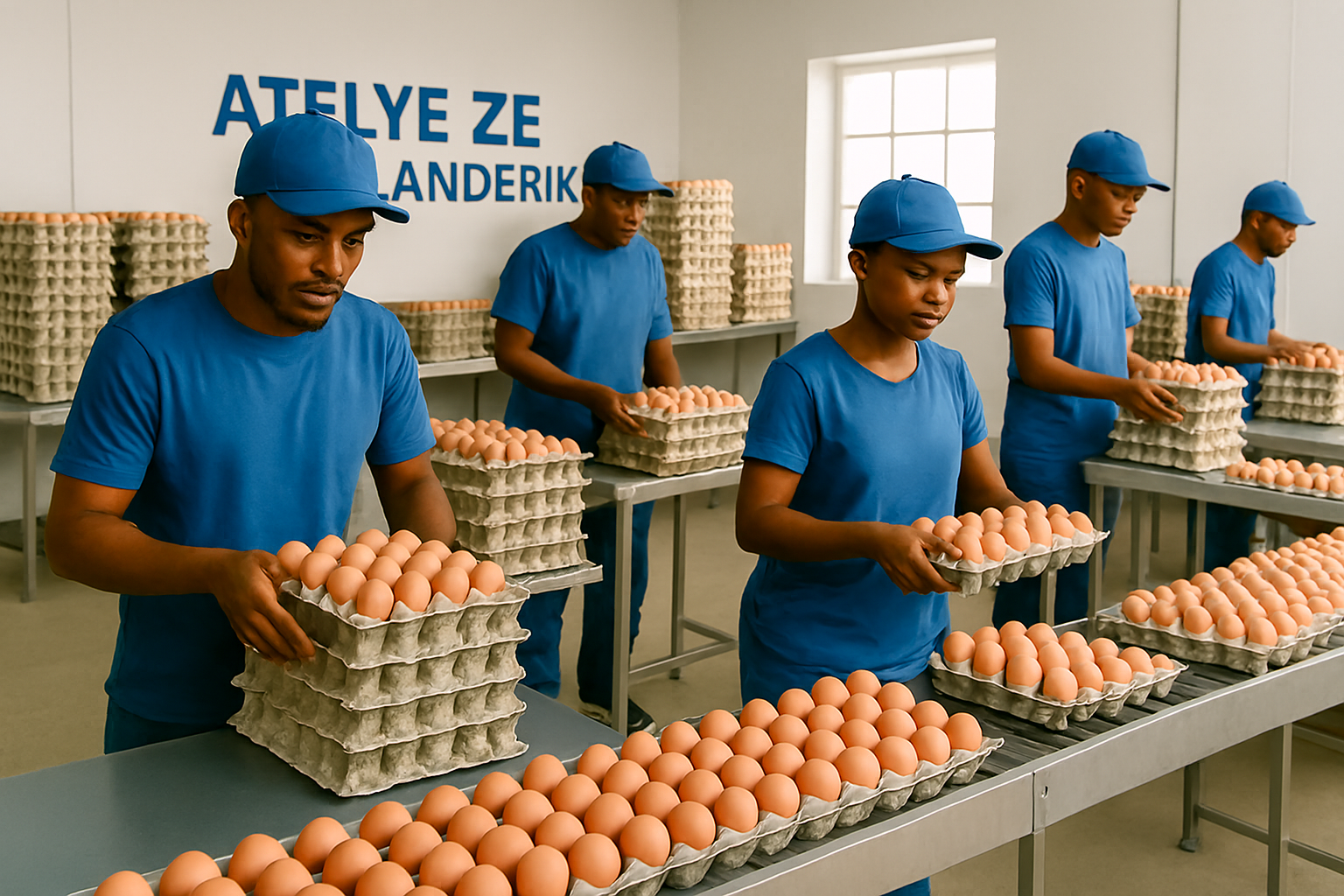Haiti’s economic future is being reshaped through Ti Pa Gwo Pa, a bold national strategy that blends grassroots entrepreneurship with strategic industrialization. This dual approach—supporting small enterprises (Ti Pa) while building foundational industries (Gwo Pa)—creates a resilient ecosystem of local production that meets domestic needs and positions Haiti for global export.
The Ti Pa component empowers local entrepreneurs, artisans, cooperatives, and innovators. Through training, startup financing, equipment grants, and access to the Mache Lakay and Ti Mache networks, the government is activating regional industrial blocks called Atelye. These shared spaces support sectors like textiles, hygiene products, household goods, natural remedies, and digital services—laying the groundwork for inclusive, community-based manufacturing.
Gwo Pa focuses on strategic industrialization in construction, agro-processing, electronics, medical equipment, and pharmaceuticals. The state invests in patent acquisition, industrial park development, and technology transfer, backed by partnerships with the Haitian diaspora and international allies. This pillar reduces import dependency and builds national capacity for innovation and export.
Together, Ti Pa and Gwo Pa feed directly into the Devlopman Mache Lakay (DML) program. Atelye supply Ti Mache franchises, Gwo Pa industries strengthen Haiti’s production base, and diaspora investments amplify global visibility. The program’s social impact is profound: thousands of jobs, technical training, economic sovereignty, and inclusive opportunities for women and youth.
The rollout unfolds in three phases: incubation and infrastructure, production and expansion, and finally consolidation and export. From pilot Atelye blocks to national industrial parks and diaspora storefronts, Ti Pa Gwo Pa is more than a plan—it’s a roadmap to a sovereign, productive, and innovative Haitian economy





